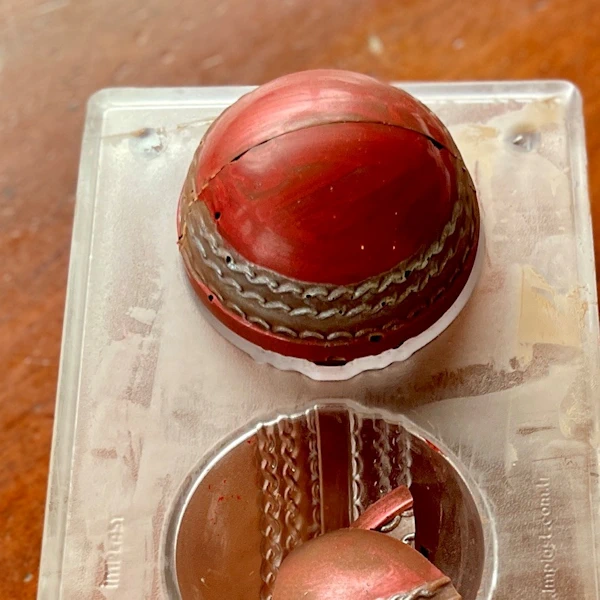
I Don’t Like Cricket… I Love It!
My relationship with cricket didn’t begin with the game itself, but with the sounds that surrounded it.
Back when I was an art student, my boyfriend at that time was a musician. During the summer holidays, we’d take on painting and decorating jobs, accompanied always by a small transistor radio. It was permanently tuned to BBC Radio 3’s Test Match Special. That’s when I got hooked—not on the game exactly, but on the rhythm of the voices, the atmosphere, and the gentle chaos of cricket commentary.
The Magic of TMS
The summer of 1981, famously known as Botham’s Ashes, was a turning point. It was the most exciting sports commentary I’d ever heard. The TMS team—Brian Johnston (“Johnners”), John Arlott, Christopher Martin-Jenkins (CMJ), and Bill Frindall (“the Bearded Wonder”)—were as much entertainers as they were broadcasters. I barely understood cricket, but I was captivated by the conversations. Sometimes, when there was nothing happening on the field, the chatter was even better.
I was especially drawn to John Arlott. His soft West Country lilt, his talk of fine Bordeaux, and his poetic turns of phrase gave the broadcasts a lyrical charm. Later, I discovered he was instrumental in bringing Basil D’Oliveira to the UK following the Sharpeville massacre—a quiet act of resistance that had a monumental impact on cricket and the anti-apartheid movement. His actions helped trigger a sporting boycott of South Africa that lasted 25 years.
”His (Basil d’Oliveira’s) selection… led to the cancellation of the tour, and the commencement of a sporting boycott that was to last for a quarter of a century.”
—Mike Selvey, The Guardian
Cake and Commentary
Another thing that delighted me was the banter about cakes. TMS was legendary for its tea-time indulgences: chocolate cakes, fruit cakes, and lemon drizzle loaves—often posted to the commentary box from listeners around the country. It’s even rumoured that the Queen once sent one in. You had to earn a mention though—the cake had to be exceptional, or the cricket particularly slow.
Years later, I moved close to the Oval. My friend Sophie had a flat overlooking the pitch. From there, I watched matches with my soon-to-be husband, James, perched on the windowsill of Lohmann House in our Panama hats, listening to TMS and watching replays on a muted TV. We were within waving distance of the commentary box. It was bliss.
James is a lifelong cricket lover. If I’d known he was also deeply into football, I might have hesitated before marrying him so quickly!
Cookies to the Commentary Box
More recently, we became friends with Jim Cemlyn-Jones, a brilliant cameraman who often films the Test at the Oval. In September 2020, when we couldn’t get tickets, we sent him on a sweet mission: deliver a box of our daughter Millie’s famous chocolate chip cookies—made with Grenada Chocolate—to the commentary team.
It worked. Jim ran into Jonathan Agnew (Aggers) as he entered the ground and handed over the goods. You can hear the joy in the commentary that followed, as Aggers and Phil Tufnell (Tuffers) bantered over the delivery. A small piece of magic.
The Chocolate Cricket Ball Challenge
Can you make a chocolate treat that looks exactly like a real cricket ball? Well… I’ve decided to try. Because clearly, the world was crying out for one.
Here’s my first attempt—a brave little prototype that’s more wonky truffle than Test match ready, but I’m working on it. With a bit more finesse (and less licking of the spoon), I’m hoping to perfect it in time for the final England v India Test at the Oval.

A Note on Voices
I’d love to hear more from the great women in cricket broadcasting. Two trailblazers come to mind: Ebony Rainford-Brent MBE, the first Black woman to play cricket for England, and Donna Symmonds, the first female cricket commentator in the Caribbean. Their perspectives and presence matter—and enrich the game for all of us.
Footnote
In June 2021, I watched my children, nieces, and nephew gather around that same transistor radio as we waited for the boat from Lundy to Ilfracombe. We were listening to the football semi-final—England vs. Germany (2–0). With no internet signal, the radio became our lifeline. Some of them admitted it felt more exciting than streaming—it turned out, the crackle of the broadcast and the suspense of not knowing every stat in real time added to the thrill.
Old school? Maybe. But magic, nonetheless